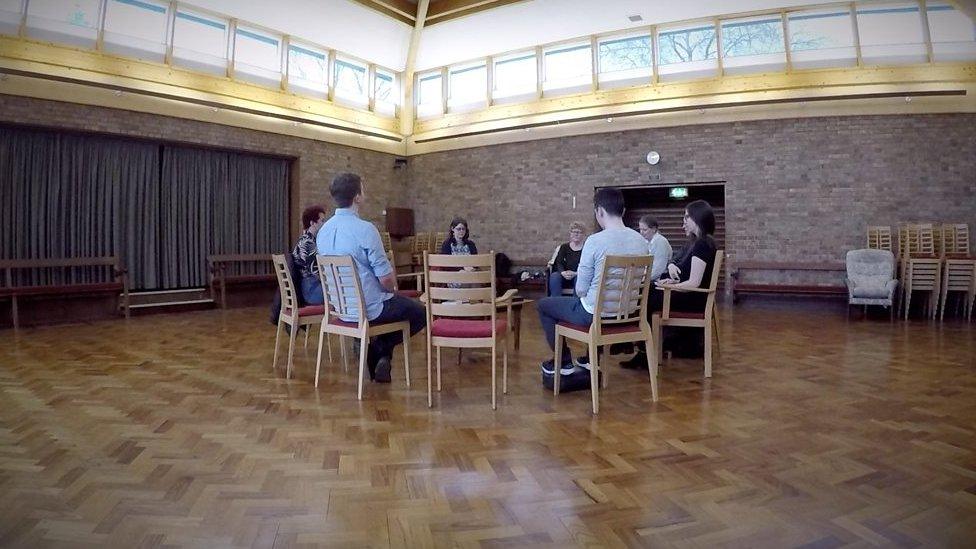Bristol master's student, 85, says you are never 'too old'
- Published
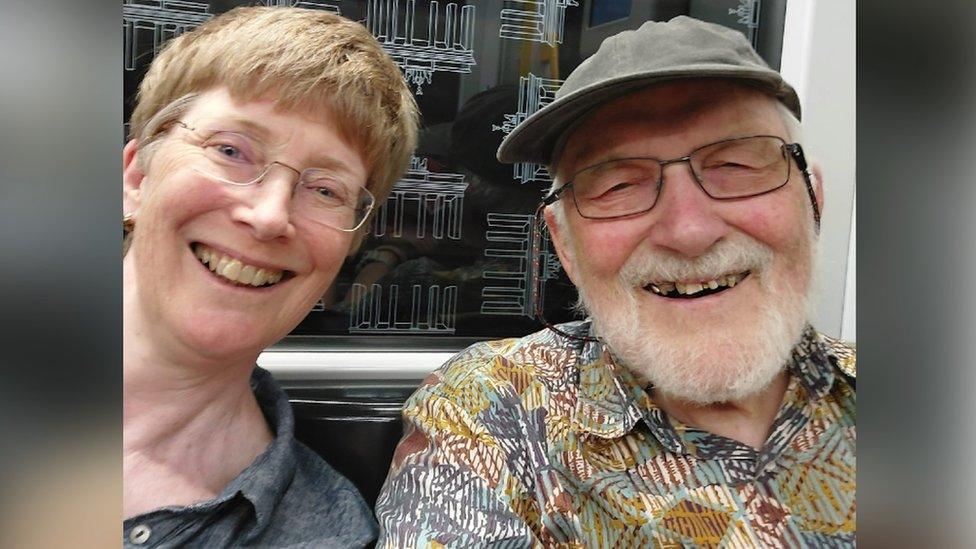
Roger Sturge (right) said he was also inspired by other family members who have achieved PhDs
An 85-year-old man has said you are never "too old" to study if you just accept it can take time.
Roger Sturge, from Bristol, is researching the work of Quakers in Nazi Germany as part of a master's (MA) degree at the Quaker Studies Research Centre in Birmingham.
Mr Sturge, who is a Quaker, said he was inspired to begin his studies after attending a seminar four years ago.
He said: "I thought, why don't I try that? I'm not too old."
Mr Sturge has already achieved multiple qualifications, including a Bachelor's in Natural Sciences, a teacher training certificate, a diploma in education and two other master's degrees.
Prior to enrolling onto his most recent course, which is delivered in partnership with the University of Birmingham, he said he was "a little bit worried", but not enough to put him off.
"We're an older crowd," he said of his fellow students.
"We're not your normal run of postgraduate students - but I think I'm probably the oldest."
'Drive and dedication'
Mr Sturge said while it can be hard "finding time and energy to do it", he finds it "very, very interesting".
"I get quite enthusiastic about it. It takes me a little while, and it can get frustrating, but it's good. I've just got to accept that it takes time," he added.
Mr Sturge joined the remotely-delivered course after his wife passed away in April 2021.
The Honorary Professor of the course, Ben Pink Dandelion, said: "Roger does indeed show that you are never too old to take on a research degree.
"He has drive and dedication and above all a passion for his topic. That's the main factor for success, and Roger is able to combine that with great clarity of thought and organisation."
He added that Mr Sturge is not alone, with two thirds of their student body being retired.
"If you are keen, you can do it. Age is no barrier," he said.
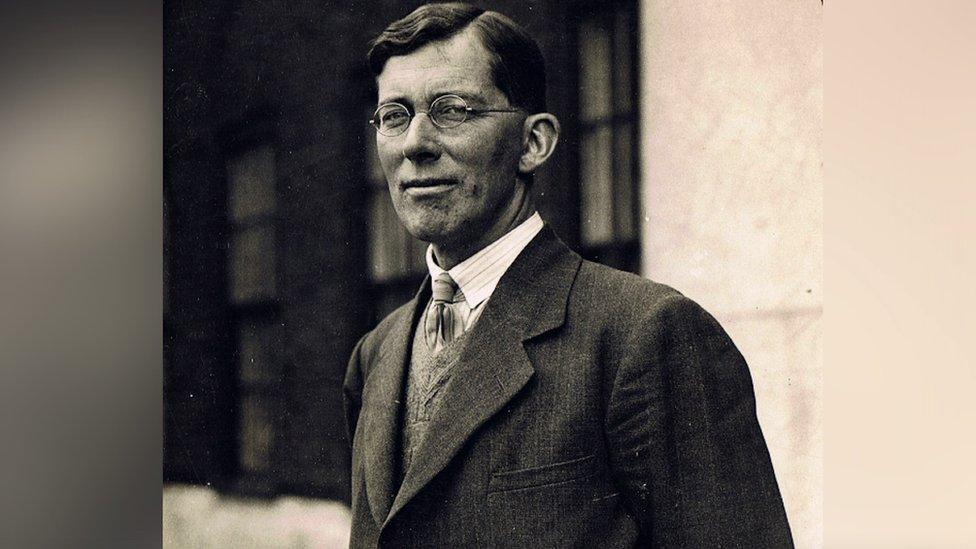
Paul Sturge was General Secretary of the Friends Service Council until 1956
The Quaker Movement was founded in England in the 17th century by George Fox, with members practicing pacifism.
Mr Sturge said he wanted to study the Quakers' work in Nazi Germany because nobody else has written about it from the British point of view.
"It came to me straight away that I should look at that period. It's actually quite interesting," he said.
Mr Sturge also has a personal connection to the period, with his father, Paul Sturge, appointed General Secretary of the Friends Service Council in 1935.
Paul Sturge had overall responsibility for British Quakers working in Germany and during his time in the position, he signed a letter addressed to Hermann Göring, who was one of the most powerful figures in the Nazi Party and was responsible for the concentration camps.
The letter was raising the issue of the treatment which prisoners in the concentration camps faced, Mr Sturge said.
"If Quakers were asking about particular individuals [in the camps], then those individuals would do a bit better," he added.
"Sometimes they even managed to get them released."
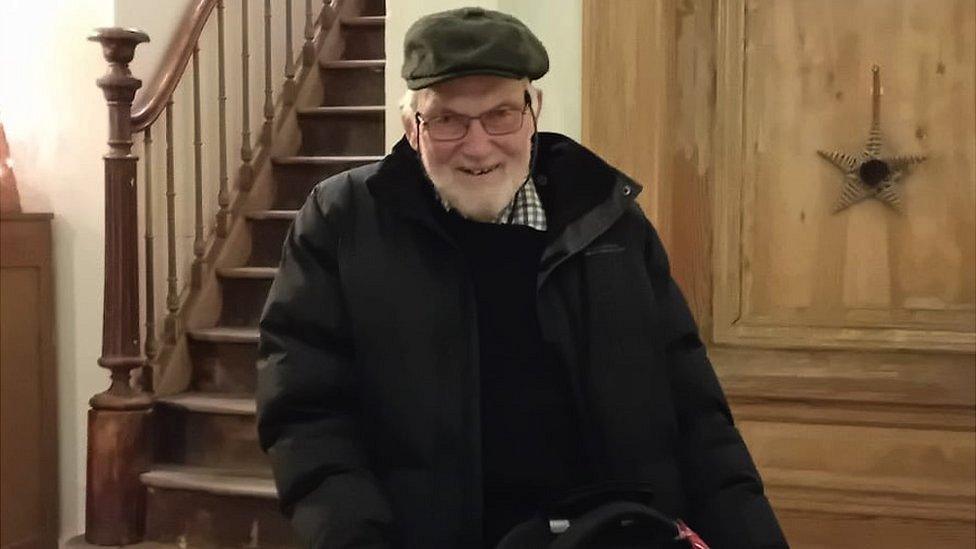
Roger Sturge began his Quaker Studies master's degree course in 2021
Mr Sturge said his early memories and tales from others about the atrocities of war have lived with him since he was seven years old.
"That has been an important part of my life as a pacifist," he said.
"My inner searching and attitudes to war have been coloured from [when I was] very small. It isn't really surprising that I've taken this MA."
Mr Sturge hopes to finish his course and achieve his qualification in 2025.

Follow BBC West on Facebook, external, X, external and Instagram, external. Send your story ideas to: bristol@bbc.co.uk , external
Related topics
- Published3 February 2023
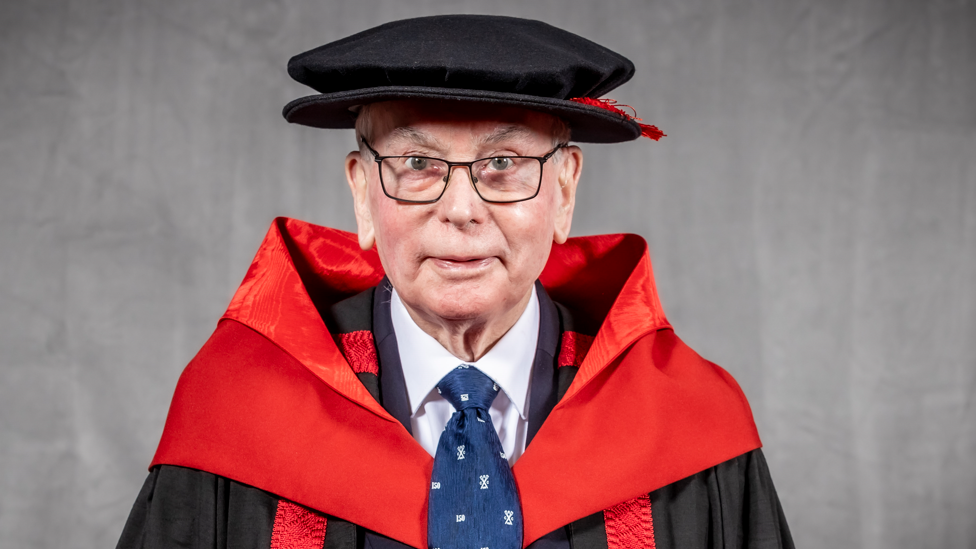
- Published9 December 2017
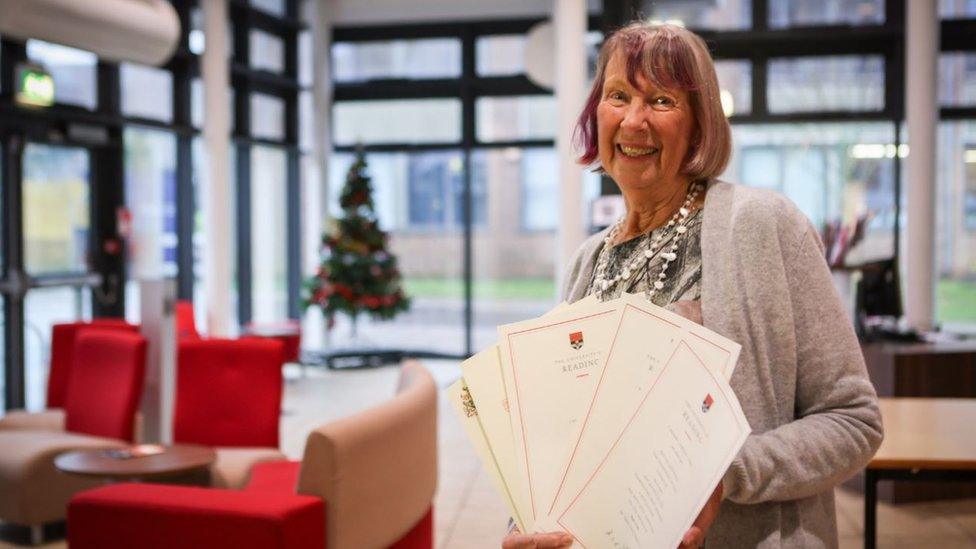
- Published7 April 2018
